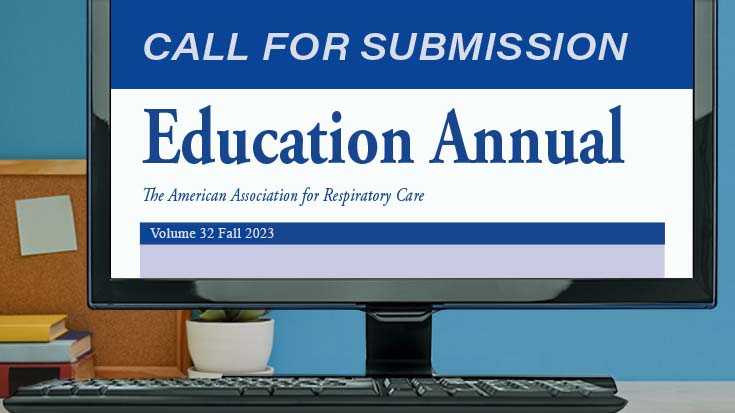
Last month representatives from each Interprofessional Education Collaborative (IPEC) Member Organization arrived in Washington DC for the semi-annual meeting. This year’s summer meeting theme was “Advancing Interprofessional Education and Practice Through Collaborations.” IPEC Special Representative Samantha Davis represented the AARC and shares news of the meeting in this article.
The Interprofessional Education Collaborative (IPEC) aims to ensure that health professionals are proficient in the competencies needed for patient-centered, community- and population-oriented, interprofessional, collaborative practice. My role as the AARC representative in this group is to advocate for the needs of respiratory therapists and provide discipline-specific expertise. Attending the semi-annual meeting this summer, I engaged in meaningful dialogue with health professions leaders about important issues impacting the educational environment today.
Key takeaways from the meeting include the widespread integration of health equity and social justice concepts throughout educational programs, outcomes of interprofessional education and collaborative practice literature reinforcing its importance, and the widespread development of wellness and resilience initiatives by member organizations. Respiratory care remains a young profession compared to many others represented in the Collaborative; however, awareness and appreciation of respiratory therapists was abundant. Respiratory therapists are invaluable members of the health care team whether at the bedside or the board room. Our work lends itself to interprofessional collaboration; it is essential that our profession is represented within IPEC and that we have the opportunity to shape the future of interprofessional care.
Many exciting initiatives are in the works, including a scoping review and revision of the IPEC Core Competencies. Stay tuned in the coming months for opportunities to provide public comment or participate in focus groups related to interprofessional care. Opportunities for professional and leadership development led by IPEC will be shared via AARC Connect or directly from the IPEC website.
Meeting Wrap-up
The Summer 2022 IPEC Member Meeting kicked off with opening remarks from Dr. Lucinda Mane, Chair of the IPEC Board of Directors. Dr. Mane announced her retirement, which she calls “preferment,” or the phase of life where she can do what she prefers. Later this year, two Board of Directors positions will open for nominations.
Important updates were shared by Judith Cohn and Kelly Ragucci regarding ongoing IPEC initiatives. Judith Cohn discussed an update on the research project, “Interprofessional Education & Patient Care: A Scoping Review.” IPEC partnered with the Association of Academic Health Sciences Libraries (AAHSL) to assist in developing a research protocol and undertaking an initial scoping review. This scoping review aims to assess the impact of interprofessional education (IPE) on direct patient care. The review seeks to answer: Has the inclusion of interprofessional education in health care curriculums directly impacted the quality of patient care? The review protocol and inclusion criteria are available on the IPEC website. The research team completed an extensive literature review in which 80 documents met inclusion criteria and were subsequently analyzed. A manuscript has been prepared and will be submitted for publication in July 2022.
Next, Ragucci provided updates regarding the IPEC Institutional Assessment Instrument and the Core Competencies Revision process. The instrument is a project co-sponsored by IPEC and the Macy Foundation. It consists of 20 items with subscales of (1) institutional infrastructure, (2) institutional commitment, and (3) IPEC Competency implementation. A manuscript detailing the project was submitted to the Journal of Interprofessional Education and Practice (JIEP) in June 2022.
Ragucci also reported on the IPEC Core Competencies Revision Working Group. Established in 2021, the Working Group has representation from all IPEC member organizations, including the AARC. The Working Group includes four work streams:
- Gather Feedback/Experiences
- Research/Literature Review
- Competency Revision
- Report Writing/Editing
The Working Group meets monthly and completed a 3-day retreat in July. Opportunities to provide feedback will be available at the Nexus Summit, upcoming virtual town halls, and in the winter/spring via a Delphi survey. These opportunities will be posted via the Interprofessional Education and Collaborative Practice group on AARConnect.
The keynote panel discussion titled, “Promoting Resilience, Empathy, and Well-Being in the Health Professions” featured Makenzie Peterson, DSW, MSc (Director for Wellbeing, American Association of Veterinary Medical Colleges), Kimber Bogard, PhD (Deputy Executive Officer, Programs, National Academy of Medicine, Action Collaborative on Clinician Well-Being and Resilience) and Darrell Kirch, MD (President Emeritus, Association of American Medical Colleges). They discussed the current state of stress and burnout in the health professions and its ties to the syndemic of COVID-19, health inequities, and structural racism; to share best practices on strategies to promote resilience, empathy, and well-being in students, residents, faculty, and practitioners across health professions.
A noteworthy resource shared during the panel is the “Action Collaborative on Clinician Well-Being and Resilience,” established by the National Academy of Medicine. A key deliverable from this Collaborative will be the National Plan for Workforce Well-Being, expected in 2022. At present, many resources are available open-access related to clinician well-being and resilience on their website.
The meeting also included an interactive member forum titled “Advancing IPE for Collaborative Practice.” Breakout sessions included: Integrating Climate Change and Planetary Health into Health Professions Education, Connecting Healthy People 2020 and Healthy People 2030, and Educating Health Professions Educators to Address the “isms.” An engaging all-member debrief followed the sessions, where leaders discussed challenges and opportunities in interprofessional education and collaborative practice.
The IPEC Summer Member Meeting wrapped up with the Excellence in Interprofessional Education Collaboration Award, presented by Dr. Steven Solomon and Dr. Kodilichi Echeozo of the U.S. Public Health Service. The award showcases multidisciplinary efforts to impact community health. It is presented annually to a team of health-professional school-based collaborators who have innovatively addressed a public health issue while making a lasting impact on the community’s health. The 2022 overall winner was “OspreyPERCH: Prevention, Early Intervention and Resiliency through Counseling & Holistic Health: An Integrative Behavioral Health Clinical Training Program,” led by Dr. Carlene Taylor from the University of North Florida. Applications will open in October 2022 for the 2023 award cycle. Details are available on the IPEC website.
It is an exciting time for interprofessional education and collaborative practice, and I appreciate the opportunity to represent the AARC and my RT colleagues. Stay tuned for more details and updates to come.
Email newsroom@aarc.org with questions or comments, we’d love to hear from you.













